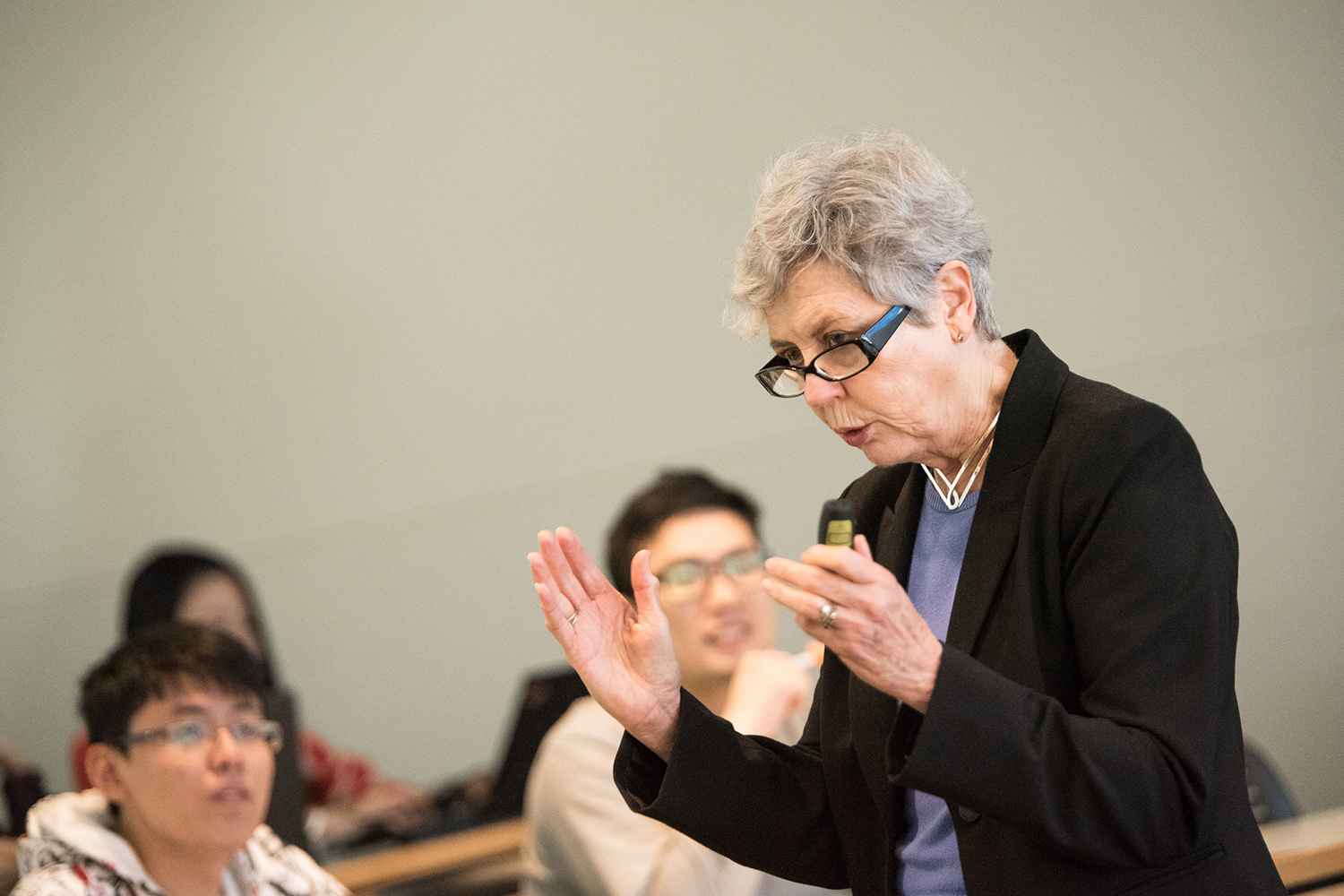Hongfei Li, a Ph.D. candidate in Operations and Information Management, knows there’s more to writing a great research paper than just having a fascinating topic.
“When we are writing a paper, we need two things, in general, besides the specific topic in each paper: methods and writing style,” Li said. “For methods, econometrics may be the most important tool for business researchers, because it helps us find the causation between two things in a business context.
“Meanwhile, how to frame our story to make it interesting and attractive for reviewers is also extremely important,” he continued. “In a ‘paper’ market, we are like sellers and we are trying to sell our work with perfect description. That’s why knowing how to write is important.”
That’s what motivated Li to participate in the Writing and Econometrics Assistance Program at the School of Business, designed to give Ph.D. students a strong advantage in preparing and writing their research papers.
The program began about a year ago and is being administered by Resul Cesur, a finance professor, and Susan Spiggle, professor emeritus in marketing. Cesur helps students with research methods and Spiggle addresses fluidity and clarity of writing.
“A successful Ph.D. program is vital to the research mission of our School. We want to do everything possible to help our Ph.D. students succeed,” said Sulin Ba, Associate Dean of Academic and Research. “The Writing and Econometrics Assistance Program complements the other discipline-based trainings the students receive. It helps the students not only choose the most appropriate methods for their research, but also craft a research paper that clearly and concisely conveys their research findings.”
Conveying Complex Ideas Clearly is Vital
The focus of the program is not on grammar and syntax, but on presentation and clarity of ideas. The aim is to provide students with the tools to convey their knowledge and discoveries to a wide audience. Students agree that is an essential skill to learn.
“It is always mentioned in our Ph.D. seminar courses that if you cannot explain well what you have done in your research, it really does not matter how spectacular the work you have done is, because nobody will understand it,” said Ph.D. candidate Sule Kutlu from the OPIM department. “Having good writing skills is inarguable for a good academic career.”
On the research side of the program, Cesur helps Ph.D. students with the foundation of their research, the nexus of their work. Without credibility, the paper will fail. In the past few decades, research has gone through drastic changes, he said. No longer is it acceptable just to have novel ideas backed by a solid theoretical foundation and access to a data set, he said.
“Developing the ability to employ credible research designs to answer first-order questions is one of the key struggles of the transition from being a Ph.D. student to becoming a successful researcher,” Cesur said. “In this process, I provide feedback to and address the questions of students at every stage of their research projects.”
On the writing side, Spiggle helps students convey their ideas clearly, while also correcting grammatical errors and overall flow of their research papers. While some students struggle with grammar, most need help with the communication of their ideas, especially how to position their paper relative to important issues in their field, and how they construct the conceptual foundation of their work. She also works with them on drawing from prior research, creating a logical flow of ideas, organizing their arguments, making connections, and tying their ideas together as the end of the paper.
Students have nothing but positive things to say about the program, thankful that it is provided to assist them and teach them skills that they will carry with them throughout their respective careers.
“Writing is hard, demanding work, even for accomplished authors,” Spiggle said. “In many ways, writing is not the reporting of thought, but thinking itself. Reading does not make a writer; rather writing, getting feedback, and rewriting allows one to hone one’s writing skills. One can always improve one’s writing.”



